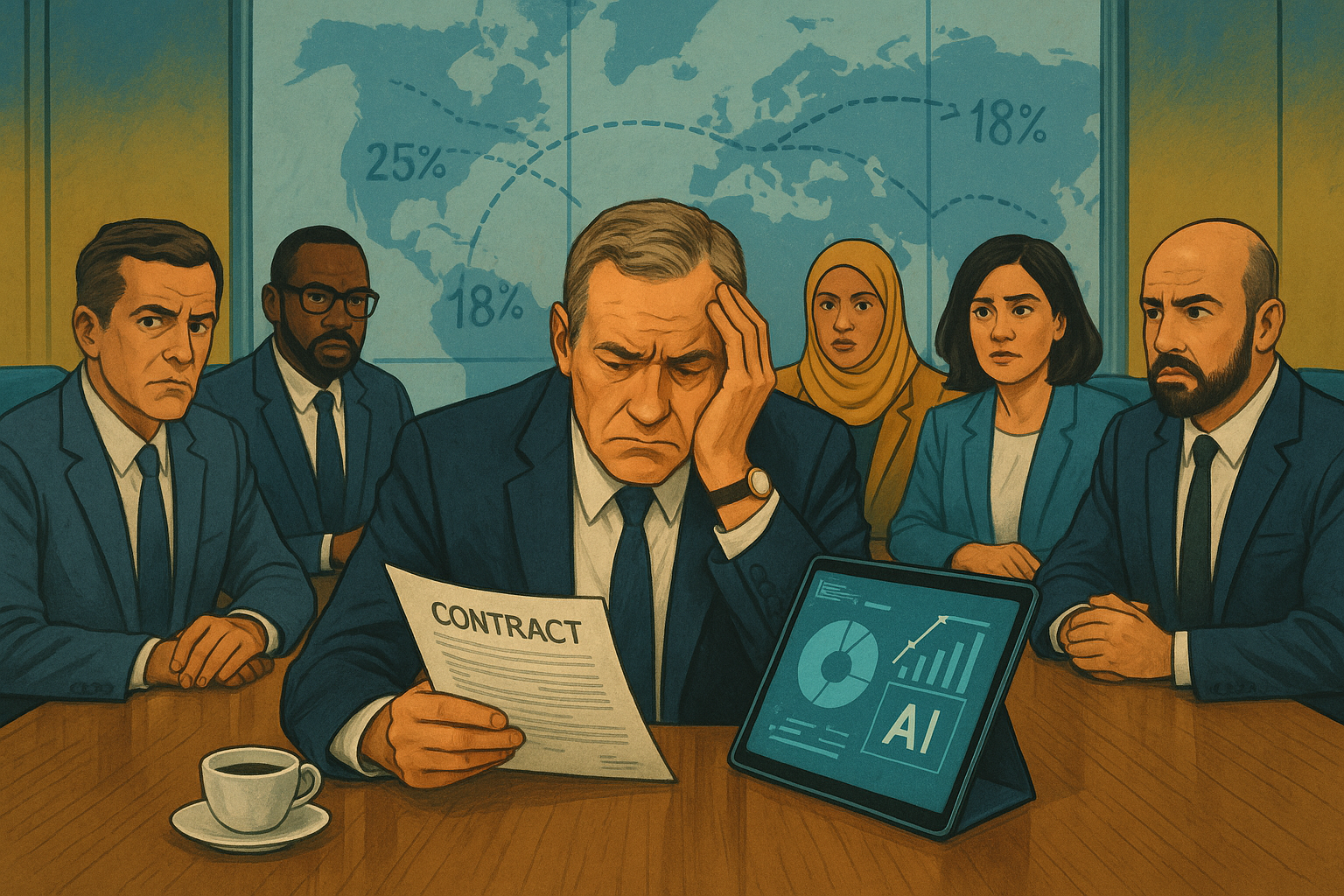Icertis, the global leader in AI-powered contract intelligence, today published a new survey based on more than 1,000 C-suite executives, including 353 UK respondents. The survey found that performance demands on the C-suite have never been higher amidst tariff uncertainties and pressure to keep pace with new AI technology.
Macroeconomic factors are increasingly impacting executives, with 94% of UK C-suite leaders confirming pressure to deliver business results has increased over the past year, and 91% reporting they are finding it harder to make the right business decisions today than this time twelve months ago.
Trade tensions specifically were highlighted as a pressure point, with 41% of UK executives listing tariffs as a factor contributing to the stress in their role and nearly 90% predicting tariffs would have an impact on the businesses bottom line.
When asked how their business is navigating the impact of tariffs, half of UK (51%) respondents confirmed they were reviewing contracts for potential savings opportunities. This was the number one response globally across markets, followed by rethinking long-term sourcing strategies (48%) and restructuring the supply chain (47%).
“Contracts are the key to capturing savings in supplier relationships, expediting cash flow in customer deals, and optimising partnerships for commercial benefit. That’s why the Icertis survey points to contracts as the lifeline that business leaders are looking for,” said Bernadette Bulacan, Chief Evangelist, Icertis.
In addition to tariffs, UK C-suite leaders cited inflation and interest rates (56%) and regulatory uncertainty (45%) among top factors contributing to stress in their role.
Keeping up with AI is burning out the C-Suite —

Interestingly, the third biggest source of strain for UK respondents was ‘pressure to keep pace with AI innovation’, with 43% confirming this placed additional stress on their role. This was similarly an area of concern amongst US (43%) and Indian (53%) respondents.
For the UK C-suite, 78% felt pressure to understand complex AI concepts that historically would not have impacted their role, and nearly 80% reported that they found it difficult to determine which AI investment would have the biggest impact.
Over a third (38%) of UK C-suite also said pressure to show ROI from AI investment contributed to stress in their role, this rose to 45% amongst US respondents, and 56% in India. UK executives also reported less AI washing, where companies exaggerate the rise of AI in their products and services, than their US and Indian counterparts. Only 36% of UK executives said they were “extremely inundated” with AI washing, in comparison to 46% (US) and 62% (India).
AI is delivering ROI, despite the executive headaches —
While AI made a prominent appearance among the respondents’ stress factors, the survey also pointed to its duality as both friend and foe to the C-suite. Nealy half of UK executives said AI was already impacting their bottom line and an additional 33% agreed it will impact their bottom line by the end of 2025. Additionally, 94% use AI to surface insights from contract data, with 89% confirming they consider their contracting technology a “must have.”
“Most enterprises have thousands – if not millions – in unrealised value hidden in their contracts. The power of AI enables enterprises to immediately capture that value by actioning data-driven insights that lead to better business decisions and measurable ROI,” concluded Bulacan.
By building contract intelligence agents for the enterprise, Icertis is driving the next era in AI innovation for commercial relationships to further accelerate strategic outcomes and maximise contract value at scale.
Survey respondents included C-suite executives at companies with more than 5,000 employees across the US, UK, and India.



